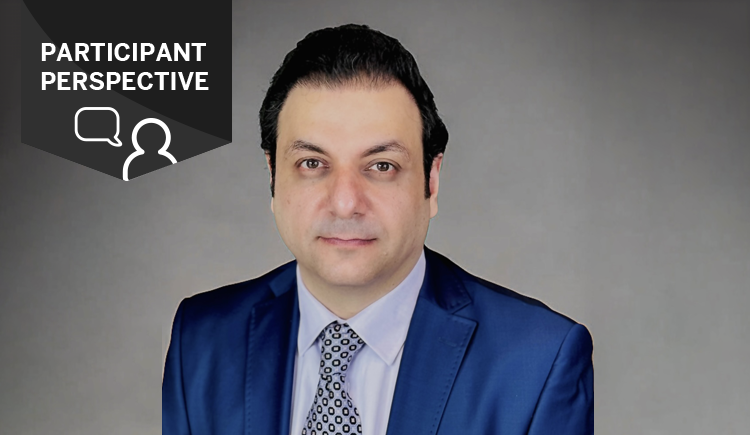
It’s a common phenomenon: a surgeon is promoted to a leadership position based on past performance (namely, being an excellent surgeon) and immediately finds that a new set of competencies is needed. Surgeons may have directed other medical professionals in their previous roles, but management, operations, and administration can come as a surprise. Because surgeons don’t have many opportunities to participate in administrative peer learning when they’re in medical school, they may feel unequipped for the role and deficient in the skills required.
“So much of great care involves coordination,” says Michael A. Roberto, AB, MBA, DBA (Harvard University), professor of management at Bryant University and lecturer in the Surgical Leadership Program at Harvard Medical School (HMS). “It’s not a solo act anymore—frankly, it probably was never a solo act, but it’s come to be appreciated as a collaborative act to care for patients. Surgical leaders have to be able to bring people together with different expertise in order to ultimately do what they got into medicine to do in the first place: care for patients.”
These competencies are particularly relevant as they pertain to patient safety. Citing that many medical accidents are the result of a chain of errors (instead of one individual’s mistake), Roberto explains, “If you’re going to fix that issue, you have to think systemically. You can’t just say, ‘I have to get better as an individual surgeon.’ You have to figure out: What’s our process, and where did it break down? This is why leadership is so important for all doctors and surgeons especially.”
Understanding the Challenges of a New Leader and a New Team
Whether you are working with a new team or have inherited a pre-existing one, it’s important to remember that the team dynamics that precede you will have a significant impact on your new role. “It’s not just your style. It’s how they were led before you took over that lives on,” says Roberto. “If there was a culture of fear, that culture is not going to change just because you come in and say, ‘I’m different.’ They’re not going to automatically trust you. How do you build trust?”
Building that trust takes time and effort—and it’s not just about relying on your expertise or previous positions. Saying something akin to, “We’re implementing this procedure because that’s how we did it where I used to work,” is rarely successful, explains Roberto, and can provoke a visceral pushback against the policy in question.
If you’re a new surgeon leader, it can also take time to acknowledge that you’re no longer an individual performer; instead of having all the essential knowledge in context, you need to focus on what you don’t know. If you completed your medical training in a top-down, hierarchical format, it also will take time to unlearn this style of leadership, especially since you’ll need to place trust in your team through assigning and delegating responsibilities. In short, you’ll need to constantly be learning about the team dynamics, the organization, and your place within it.
“I have authority over my team. But actually, systems in medicine are complicated and cross-functional. So now I have to get people in other areas, over whom I don’t have authority, onboard with what I’m trying to accomplish. Often, issues are systemic. How do I influence and persuade others? It’s one of the biggest leadership skills that’s so critical to figure out,” says Roberto.
As a first step, you must understand and effectively tap into the expertise of people on your team. The people you manage will have knowledge that you do not. Actively seek out that knowledge, says Roberto, and keep in mind the Aristotelian notion of the whole being greater than its parts. “I try to emphasize that to get a great team, we have to first uncover where the expertise is before we can actually collaborate.”
Starting to Develop, and Implement, a High-Performing Team
When a team is performing well, explains Roberto, there are three primary dimensions of success:
- Results: What’s the objective you’re trying to achieve? For example: Are patients being cared for, and is patient safety high?
- Sustainability: Can team members consistently meet these objectives over time? “You can do some things that get the job done today but really poison the well so that you can’t perform well together tomorrow,” says Roberto.
- Morale: Do the people on your team feel like they’re developing, growing, and fulfilled? Are there ways for them to progress and advance?
In order to achieve a high-performing team, new surgeon leaders must keep three correlating competencies top of mind:
- Structure: There should be well-defined roles and responsibilities. Do people understand the expectations? Are goals clearly laid out for them?
- Culture: The team dynamics should make people feel comfortable. Citing Harvard Business School professor Amy Edmondson’s work on psychological safety, Roberto explains, “Do people feel like they can speak candidly with one another?”
- Process: It should be clear how decisions are made, and that methodology should maximize discussion and ideas. When the team or parts of it have to make a decision, are they being engaged in such a way that leads to sharing, collaboration, and critical thinking?
This can be a long process but a critically important one for the success of the organization and its patients. “The best leaders are always learning from their peers—both in and out of the classroom. Most leaders don’t get enough time to talk to leaders in other organizations and ask, ‘How did you solve this problem?’ The ability to learn from others is a big core competency for leaders,” says Roberto.


